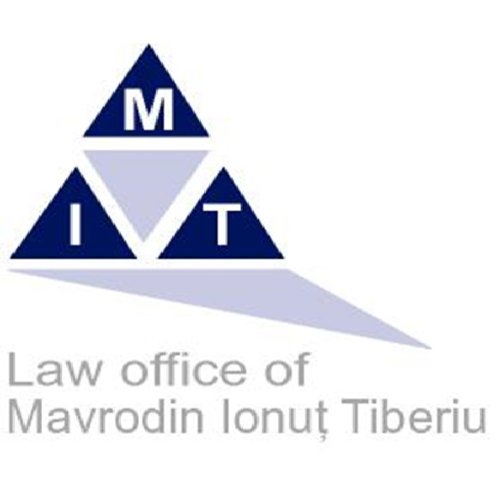Best Renewable & Alternative Energy Lawyers in Constanța
Share your needs with us, get contacted by law firms.
Free. Takes 2 min.
List of the best lawyers in Constanța, Romania
About Renewable & Alternative Energy Law in Constanța, Romania
Constanța is a key region on Romania’s Black Sea coast, recognized for its significant role in the country’s energy sector. As the world shifts towards sustainable energy solutions, Constanța has become a hub for renewable and alternative energy projects, especially in wind, solar, and biomass. The framework governing these activities is based on both Romanian national law and European Union directives, with a focus on promoting clean energy investment, ensuring environmental protection, and facilitating grid integration.
Renewable and alternative energy law in Constanța involves rules and regulations that oversee the production, licensing, financing, and operation of energy projects that use sources like wind, solar, hydro, biomass, and geothermal. These laws ensure that projects not only comply with environmental standards but also receive the appropriate government incentives and adhere to local zoning and land use policies.
Why You May Need a Lawyer
Engaging in renewable and alternative energy projects in Constanța can be complex due to the multi-layered regulatory landscape. Individuals, businesses, or foreign investors may need legal assistance in various scenarios, including:
- Navigating project permitting and approval processes for wind farms, solar parks, or biomass plants
- Understanding eligibility and application for government incentives and subsidies
- Negotiating land lease or purchase agreements for energy developments
- Interpreting zoning and environmental protection requirements
- Reviewing and drafting contracts with developers, suppliers, or utility companies
- Handling disputes with local authorities, regulators, or neighboring landowners
- Ensuring compliance with national and EU regulations for renewable energy production and sale
- Assisting with cross-border or international energy transactions or partnerships
- Advising on the legal aspects of connecting to the grid and selling electricity
- Managing intellectual property related to innovative energy technologies
Local Laws Overview
The renewable and alternative energy sector in Constanța is governed by an intricate legal framework comprised of several key laws and authorities:
- Romanian Energy Law No. 123-2012, which governs electricity and natural gas activities, including renewables
- Laws implementing the European Union’s Renewable Energy Directive and targets for 2030 and beyond
- Authorization and permitting processes managed by the National Energy Regulatory Authority (ANRE)
- Support schemes, such as green certificates and feed-in tariffs, for investors in renewable energy
- Environmental protection legislation ensuring that projects undergo Environmental Impact Assessments (EIA) monitored by the Environment Protection Agency Constanța
- Local public administration rules on land use, building permits, and urban zoning relevant to energy installations
- Specific regulations for offshore wind and marine energy due to the Black Sea location
- Obligations for connection to the national grid and procedures managed by Transelectrica (the grid operator)
Staying up to date with these regulations is essential for project success and compliance.
Frequently Asked Questions
What types of renewable energy projects are viable in Constanța?
Constanța is ideal for wind power, solar photovoltaic installations, and biomass projects due to its geographic location, wind conditions, and agricultural output. The Black Sea proximity also opens opportunities for offshore wind energy.
Do I need a permit to install solar panels on my property?
Yes. For residential, commercial, or industrial solar installations, several permits may be required, including building permits, grid connection approval, and sometimes environmental clearance depending on the project size.
What incentives are available for renewable energy investments?
Romania offers green certificates and other support schemes for renewable energy producers. These incentives are subject to eligibility criteria and subject to change with new government policies.
How do I get a license for operating a wind farm?
You must apply to the National Energy Regulatory Authority (ANRE), demonstrating compliance with technical, financial, and environmental requirements. The process also involves obtaining local permits and conducting environmental studies.
What environmental assessments are required?
Most projects must complete an Environmental Impact Assessment (EIA), supervised by the Environment Protection Agency Constanța, to evaluate and mitigate potential ecological impacts.
Can foreign investors own renewable energy projects in Constanța?
Yes. There are no prohibitions on foreign investment in the Romanian renewable energy sector, though all investors must comply with national and local regulations.
How is energy from renewables sold or supplied to the grid?
Producers must sign a grid connection agreement with Transelectrica and meet technical standards. Electricity can be sold on the electricity market or through bilateral contracts, subject to ANRE regulation.
What if a project faces opposition from local communities?
Community consultations are often part of the EIA process. Legal avenues exist to appeal administrative decisions, and negotiation with stakeholders is recommended to find mutually beneficial solutions.
Are there special rules for offshore wind or marine renewable energy?
Yes. Due to its Black Sea coastline, Constanța has specific maritime regulations and additional permitting requirements for offshore projects.
What legal risks should I be most aware of in renewable energy projects?
Key risks include changing regulations, delays in permitting, land disputes, environmental liability, financial viability, and contract enforcement. Legal advice helps mitigate these risks.
Additional Resources
If you need more information or assistance, consider reaching out to the following resources:
- National Energy Regulatory Authority (ANRE)
- Ministry of Energy of Romania
- Constanța County Council and local city halls for zoning and urbanism policies
- Environment Protection Agency Constanța
- Transelectrica (the national electricity transmission company)
- Romanian Wind Energy Association
- Solar Energy Association Romania
- Local law firms specializing in energy law
- Business chambers focused on energy and sustainability
- NGOs promoting renewable energy and environmental protection in the Dobrogea region
Next Steps
If you are considering a renewable or alternative energy project in Constanța, Romania, or you face legal questions about an existing project, it is recommended to:
- Define your project goals and gather preliminary information about the technology, site, and investment
- Contact local authorities and consult official websites for the latest requirements and procedures
- Seek legal advice from a lawyer experienced in Romanian and EU energy regulations, particularly those operating in the Constanța region
- Prepare documentation related to property ownership, project plans, and any prior permits
- Consider the need for technical and environmental experts who can work alongside your legal counsel
- Stay informed about regulatory changes by subscribing to updates from relevant agencies and industry associations
Collaborating early with a professional legal advisor will help you navigate the regulatory landscape efficiently, minimize risks, and position your energy project for success in Constanța’s dynamic renewable energy sector.
Lawzana helps you find the best lawyers and law firms in Constanța through a curated and pre-screened list of qualified legal professionals. Our platform offers rankings and detailed profiles of attorneys and law firms, allowing you to compare based on practice areas, including Renewable & Alternative Energy, experience, and client feedback.
Each profile includes a description of the firm's areas of practice, client reviews, team members and partners, year of establishment, spoken languages, office locations, contact information, social media presence, and any published articles or resources. Most firms on our platform speak English and are experienced in both local and international legal matters.
Get a quote from top-rated law firms in Constanța, Romania — quickly, securely, and without unnecessary hassle.
Disclaimer:
The information provided on this page is for general informational purposes only and does not constitute legal advice. While we strive to ensure the accuracy and relevance of the content, legal information may change over time, and interpretations of the law can vary. You should always consult with a qualified legal professional for advice specific to your situation.
We disclaim all liability for actions taken or not taken based on the content of this page. If you believe any information is incorrect or outdated, please contact us, and we will review and update it where appropriate.









